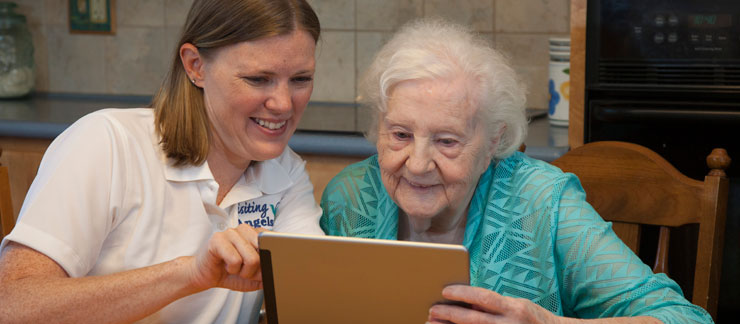Helping Elders Take Care of Tax Returns
 With the IRS’s April filing deadline only a few weeks away, Americans nationwide are getting ready to submit their tax returns. For elders, and the people who help care for them, this can be a stressful time of year – but it doesn’t have to be. With the right knowledge, preparation, and support, helping an elderly loved one take care of their tax return can be a relatively pain-free process.
With the IRS’s April filing deadline only a few weeks away, Americans nationwide are getting ready to submit their tax returns. For elders, and the people who help care for them, this can be a stressful time of year – but it doesn’t have to be. With the right knowledge, preparation, and support, helping an elderly loved one take care of their tax return can be a relatively pain-free process.
Here are a few ways you can help an elder take care of their taxes:
- Encourage Detailed Record Keeping. If your loved one is not in the habit of keeping detailed financial records, help them organize and regularly update their personal files. Finances and personal organization can be touchy subjects, so always take care with elders to broach the subject with respect and without criticism. Paperwork such as an IRS 1099 for Social Security, retirement, or investment income can be vital to the tax filing process.
- Find Out If Your Loved One Needs to File. More than 50% of Americans over the age of 65 are not required to file a tax return. The IRS does not usually require a tax return if a person’s Adjusted Gross Income (AGI) is below $10,750 for single persons or $20,900 for married couples. Since Social Security benefits do not count toward AGI, many seniors do not meet this cut-off. There are, however, some exceptions where seniors who are below this cut-off still need to file a return. The IRS website has an application that will help you determine if your loved one needs to file a return.
- Look into Possible Exemptions & Deductions. If your loved one needs to file a return, they will likely be eligible for one or more exemptions or deductions. For instance, anyone over the age of 65 is eligible for an elderly or disabled credit, which covers up to $1,125. The best resources for possible exemption and deductions are two IRS documents: IRS 2120 and IRS 501. These documents outline exemptions and deductions in plain, everyday language. Note that conditions for exemptions and deductions rely on a variety of factors, and a person eligible for a deduction one year might not be the next.
- Get Advice from a Professional. If an elder you help care for is filing a return this year – or even if they aren’t – it pays to have professional support and advice during tax season. A professional accountant or tax advisor will be able to help you set up your return, identify what documentation you need, and make sure that your loved one qualifies for specific exemptions and/or deductions. While many Americans try to avoid the cost of hiring a professional accountant or tax advisor, those costs can be limited by taking care when preparing an elder for tax season.
While taxes are rarely the most fun subject, taking the time and care with an elder to get their tax return in order will always pay off.













